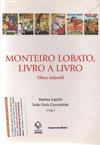Beware of the Greeks bearing... Books!
Recent bookcrossing media splashes caused a Greek Bookcrossing Invasion in the "Hot Threads".
by aris1October 31, 2006
 On October 14th, the greek magazine "Tahidromos" (greek for "Postman") decided to publish an article about BookCrossing. The guy who did
the story scanned many of our bookshelves and found interesting stuff to tell, for quite a few greek and non-greek bookcrossers. As a result, over 150 new greek members have already joined, and flooded our forum. That’s why much of the "Hot Threads" was lately
all greek to you!
On October 14th, the greek magazine "Tahidromos" (greek for "Postman") decided to publish an article about BookCrossing. The guy who did
the story scanned many of our bookshelves and found interesting stuff to tell, for quite a few greek and non-greek bookcrossers. As a result, over 150 new greek members have already joined, and flooded our forum. That’s why much of the "Hot Threads" was lately
all greek to you! We (aris1, deadenedmind, and StrangeEmily) translated the article in English, so we can share. If you'd like to see the scanned version of the original articles, click here and here. And as to our english translations,here goes!:
If you happen to find a book on a bench, maybe someone has left it there for you. If you did read it and then left it somewhere else, you ‘ve just entered the game that makes the books travel around the world. In one word: Bookcrossing.
Article by Pericles Dimitrolopoulos; Photographs: Vassilis Mathioudakis
On August 24, 2003, a woman from Inverness, Scotland with the nickname swan-scot left Nick Hornby’s book "High Fidelity" on the top of a Highland hill. The spot was quite far from the road, but swan-scot hoped that a trekker would eventually spot it and take it home to read it. The next day, explorer-21 from Edinburgh typed in the internet the following message: "Picked up book today at about 1:00pm. Hopefully I'll be able to help it on its journey, maybe onto a much bigger hill". Eventually explorer-21 enjoyed the book "although it is not of the genre that i would normally go for. It was funny but not hilarious, and gave a slightly confused view of life". Then he kept his promise. On Tuesday, September 02, 2003, he left "High Fidelity" on the top of Mount Kilimanjaro, in Tanzania! But the book was not lost. A month later, a german physician spending a voluntary year at the hospital of Kibosho, a town on the south side of Kilimanjaro, was helping a lady patient. She wanted to offer him some money, but she did not have any. Wanting to thank the physician, she opened her bag, pulled out the same "High Fidelity" book and gave it to him! The volunteer did not want to take it, but she insisted; she assured him that she couldn’t read it anyhow. "I saw the stickers inside. Thus I learned about bookcrossing. I'm not a big reader but I'll give it a try. I'll try to update you on its further travels".
So, if you come across a Dan Brown’s bestseller or a Friedrich Nietzsche’s biography on a park’s bench, do not believe that this is just your lucky day and you found a gratis read or a decorative bric-a-brac for your home bookshelf. It’s most likely that you just found a book that one deliberately left for someone else to find, who will then leave it, by his turn, at a different spot for the next reader. And if, in the inside cover, you find a label with a yellow running book and the phrase, "I am a traveling book, read and release me", then be sure: This is an actual "bookcrossing" case...
A global library.
Bookcrossing got started in Missouri, USA, in May 2001.
Ron Hornbaker first thought of it and created the relevant website for organization and information of users (www.bookcrossing.com). The success was such that five years later bookcrossing has almost a million members from all over the world – From Greece,
Afghanistan and Australia to Fiji, Belgium and Ethiopia, while the Concise Oxford English Dictionary added an entry for bookcrossing in its 2004 edition as "the practice of leaving a book in a public place to be picked up and read by others, who then do likewise".
An accurate definition, albeit a little inadequate. Bookcrossing is more than just a simple trading of books, organized by Hornbaker’s website or various fora. Bookcrossers have turned the world into a lovely library and the books there don’t cost a thing.
They leave and take books from benches, airports, cafes, bars and beaches, even... mountains, like the Scot explorer21. Furthermore, they inform others of their activities, comment on authors, discuss various issues, exchange viewpoints, phrase critiques in
the relevant internet website. From this point of view, bookcrossing is one of the most fascinating adventures of knowledge.
The most traveled one.
In this kind of adventure, one of the most traveled books is the poetry anthology
"Apocalisse 23" by Italian
Michele Fabbri, was released by its author himself in Forlì, Emilia-Romagna, Italy. Someone "recognized in these poems all the anger he feels inside", someone else in Perugia thought that "only one
poem is good enough, the others are uninteresting", a third journaler in Rome “could not appreciate this kind of poetry and hoped someone else would find the book who could". Finally, one person who found the book “dark but cute” informed others that he would
release "Apocalisse 23" in a train passing the border through the Alps. The next message came from the Netherlands and a student who did not understand Italian and who would send the book to someone who knew the language. No one knows how it ended up in Portugal,
but the person who found it had lived in Paris for years where he had learned some Italian. He read what he could and then he mailed it to an Italian he had met in Paris and who lived in the United States. Some time later an American wrote: "Nice edition!
I will read it with my husband who is a native Spanish speaker", while a student in the University of Northern Iowa stated that she would release the book "in the ladies room of the building where the music teachers have their offices. An opera student might
find it interesting".
The world recordman.
The way this worldwide library is made and many other similar stories are told by Paul Lareau, an aged 64 retiree from Little Canada, Minnesota.
Pjlareau -as his Bookcrossing nickname stands- has released about 22.000 books in the wild and he keeps the world record in this category. "Of course I have released many books from my own bookshelf.
Many others I buy from flea markets, from second hand bookshops or from other people who give me away books that they do not wish to keep any longer. Many of them I haven’t even read. I buy them only with the purpose to release them”, he says to "T" magazine.
"There are books that I never release in the wild: Those for which I am almost certain that some day I am going to read again and books which form part of my personal collection". Pjlareau is an avid reader. He reads about 100-150 books a year –usually more
than one simultaneously, so that he can choose any of them at times according to his mood. He explains that circulation of knowledge is as fascinating as reading itself. "I began releasing books because, as a reader, I knew what it meant for someone to come
"in touch" with a good writer who would personally appeal to him or her. I often receive this kind of messages. Apart from the travel of a book, which is a quite intriguing adventure by itself, it feels also like performing a good act. After all, reading is
a lonely activity. As soon as one finishes a book, one wants to share things, to exchange opinions".
Greek bookcrossers.
Paul Lareau from Little Canada could have exchanged views with
Eliso Logotheti from Athens. She has sent and received many books from abroad, has discovered many authors and has recommended many Greek authors whose books have been translated in English. Eliso, one of the founding members of the Greek community, discovered
bookcrossing when she came by a copy of Harper Lee’s
"To Kill a Mockingbird" that a Danish bookcrosser had released on an island in the Aegean. "I discovered many authors in this way and I read many good books. Later on, when the local bookcrossing activity became stronger, we gradually got to know each other
better and had the chance to meet in person, talk and exchange views and books", she states.
Daphne Koumpa, a sociology student, has released 261 books and is one of the most active members of the Greek community. It began as a hobby and soon bookcrossing became one of her main activities.
"The thought that my books are traveling, that I share them with strangers, gives me a wonderful sensation. Once, I released a children’s book and I found a message on the internet saying ‘thank you, you made my day.’ It felt great that a book of mine touched
a person so much", she says to "T".
Daphne started releasing books –usually the ones she didn’t like and took up space on her bookcase. "I started with these, but also with the thought that a book I didn’t like someone else might enjoy", she mentions. Later on, like many bookcrossers in the world,
she bought books from bazaars just to release them. As for her favorite books, the wish to share views and discover new authors often leads her into buying a second copy of a book just to release it. Apart from the usual places, she has released books in restaurants,
buses, flower-pots, at her university. And it also depends on circumstance. "Recently", she says, "I went to see a film about Leonard Cohen. I took
one of his books and released it in the cinema". How large is this bookcase from which she takes and offers books? "Very often I contact bookcrossers from other countries and we exchange books. It’s
like belonging in a global community", she answers.
Hundreds of books await their new readers in likely and unlikely places all over the world. They don’t belong to anyone and they don’t gather dust on anyone’s shelf. After all, bookcrossers, these avid readers and peculiar knowledge-traffickers, among other
good things also escape the classic question that all owners of large bookcases have to tolerate: "So, you’ve *actually* read all these books?"
BOOKCROSSING IN GREECE:
- The Greek community of Bookcrossing counts more than 1600 members.
- In Athens, the National Garden is the most usual site for bookcrossing. In central areas of the city, such as Kolonaki, Exarcheia and Plaka, books are quite often released, while relatively recently the city has obteined its first Official Bookrossing Zone
in "Cafeina", a café – bar, on Zoodochou Pigis street.
- Thessaloniki (Northern Greece) and Chania (Crete) are very active and Larissa (Central Greece) has recently started to with organising its local BC community.
- You will know that a "travelling book" is in your hands as soon as you see the special label on its front cover or on its inner first page.
- If you click the address: www.bookcrossing.com, you will be able to follow the journey of a book and write down your comments.
GLOSSARY:
BCID (ΒookCrossing ID): The 9-digit number which is given to every book registered in Bookcrossing.
TBR (To be read): Indicates that the person who keeps the book is in the process of reading it.
AVL (Available): Available for release or for sending the book to a certain receiver.
RES (Reserved): Kept for future reading.
REL (Released in the wild): The book is released by a bookcrosser so that anyone can find it.
TRAV (Travelling): This indication appears when the person who keeps the book has posted a release note for this book.
PC (Personal Collection): The person who keeps the book indicates this way that he/she does not intend to release a certain book.
OBCZ (Official book crossing zone): An place especially organised for bookcrossing. It is usually set in some internal, roofed space, naturally with the concent of the site’s owner.
Bookring: The circulation of a book with its original owner as its final destination.
Greek Forum: The Forum page within the Bookcrossing.com site, where Greek bookcrossers meet. You can find the forum in: http://www.bookcrossing.com/forum/28
BookCrossers on pics (alphabetically): alaleon, apapsa, aris1, deadendmind, PinkManager, ROBBERGIRL, s3rendipity







